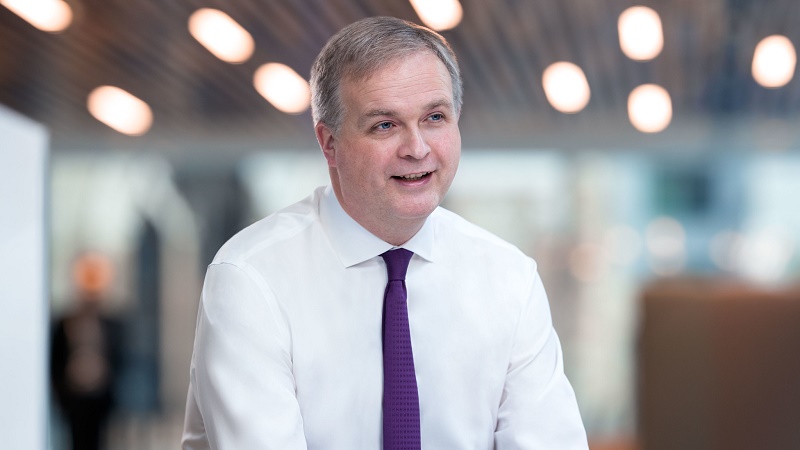Liz Truss (pictured) has resigned as prime minister after a record breaking short stint in office, lasting just 44 days. Her first chancellor Kwasi Kwarteng’s mini-budget sent markets into a tailspin, and the ensuing U-turns, and his subsequent sacking, served only to diminish confidence in her government. After his successor, Jeremy Hunt, dismantled Truss’ economic vision in his maiden speech on Monday, her economic credibility appeared broken beyond repair.
Danni Hewson, a financial analyst at AJ Bell, said that it was the uncertainty of the mini-budget that set the wheels for her resignation in motion: “To use a phrase that has no doubt been exhausted in the past few weeks, markets don’t like uncertainty, and losing another prime minister in the midst of a cost-of-living crisis is far from ideal. However, Liz Truss’ credibility with markets was shattered when her former chancellor unveiled the mini-budget which effectively lit the touch paper on an explosive period for politics, and demonstrated the importance of taking markets with you when it comes to fiscal policy.
“Sterling received a boost against the dollar on the speculation that resignation was imminent and the yield on 30-year gilts was nudged down, but the reality that number 10 is once again in need of a new inhabitant has led to minute by minute fluctuations.”
With an eye on the future, Hewson added: “Now the ‘will she, won’t she’ part has been taken out of investor equations, the FTSE 250 has rallied and with the prospect of a firm hand on the tiller, markets are now anticipating the Bank of England won’t have to raise rates as far or as fast when they meet next month.”
Azad Zangana, senior European economist and strategist at Schroders, has also noted a positive reaction from investors: “The pound has risen against both the US dollar and the euro, while benchmark 10 and 30-year gilts have seen yields fall [and prices rise], outperforming other government bonds on the day.” However, he warned of over-confidence, stating that “significant challenges” remain for the UK, including how the Bank of England responds to this period while trying to lower inflation, which last month hit a 40-year high.
Stuart Clark, a portfolio manager at Quilters, saw a small resurgence in sterling as well as in the gilt market after Truss’ departure was announced. He added that this, coupled with the comment from the deputy governor of the BoE that the central bank may not raise rates as high as the market expected, elicits a “steadying feeling” after recent volatility. However, he warned that “fiscal policy is still very much up in the air, and with inflation continuing to ravage consumers’ incomes, the economic picture still looks challenging and will for some time, regardless of who sits in No.10”.
Other industry commentators have noted a more muted market reaction. Head of multi asset at Royal London Asset Management, Trevor Greetham, says that the low-key response was no great surprise, as most of the planned tax cuts that upset the bond market were abandoned when Hunt took office as chancellor.
Orla Garvey of Federated Hermes agrees: “The market has barely reacted to Liz Truss’s resignation so far and that’s because we will more than likely go back to a more orthodox fiscal stance, which has been priced in over the last few sessions following Jeremy Hunt’s appointment as chancellor.”
Neither is Garvey expecting the appointment of the next PM to be “massively market moving” unless, she says, “some of the candidates are deemed to be more radical in terms of their fiscal outlook, which seems unlikely”.
The initial reaction has done little, however, to repair the economic damage that has already been inflicted. Inflation is ballooning, mortgage rates are rising and the Q3 earnings season has shown AUM sliding dramatically across the asset and wealth management board. Susannah Streeter, senior investment and markets analyst at Hargreaves Lansdown, said that Truss’ political gamble had “significantly backfired”, and that it would take a considerable amount of time before the risk premium attached to UK assets faded away.
She adds that the future is “marginally brighter” without Truss in charge.
Charlie Parker, managing director at Albemarle Street Partners, followed that note of qualified positivity: “Now the attempt at radical spending has been tried and found to fail it is likely that it will be many, many years before it is tried again, by either the left or the right. This reduces the risk of unfunded spending in future from either major party.”
After markets digest the events of the past 24 hours, all eyes will turn to watch the cavalcade of would-be prime ministers set out their respective stalls – among them is expected to be Boris Johnson, although Hunt has already ruled himself out of the running.
A new prime minister will be chosen by Friday 28 October at the latest, just days before the chancellor is expected to announce his medium-term fiscal plan which could involve a lot of editing between Truss’ departure and her successor’s arrival. Just days later, the BoE monetary policy committee will meet to determine how high rates are set to get.
Anyone hoping for plain sailing as this tumultuous year (finally) comes to a close, is out of luck.











